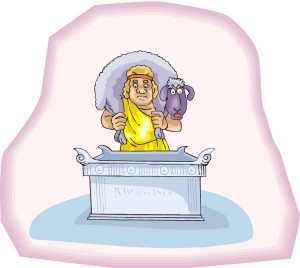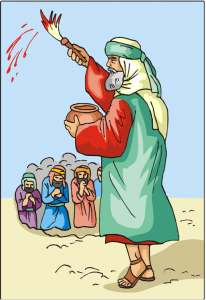Hebrews 8:13, Ready to vanish away. Many who read this verse assume that the writer is saying that the Torah-law was ready to vanish away ergo the law has been done away. This belief is orthodox Christianity! But is this what the author is saying here? Read it again? Is he saying that the law is vanishing away or the covenant is vanishing away? The latter! What is the difference between the two?
The covenant was nothing more than a contract between YHVH and the people of Israel that he made with them at Mount Sinai (Exod 19–24). Think of a modern contract (e.g., buying a car, a house or agreeing to pay for services rendered). A contract is nothing more than an agreement between two or more parties. Then you have the terms of the contract. If one party fails to keep up his end of the agreement, does that mean that the terms of the contract are evil? Not at all. It means that one party failed to keep his word and the contract was then voided.
The same was true with the contract of the “Old Covenant” that YHVH made with the Israelites. The terms were that if they would worship him and obeyed his Torah-laws, he would bless them, and if not, he would punish them. They agreed to these terms three times (Exod 19:8; 24:3,7), yet they ended up not keeping their word and worshipping false gods and breaking his laws again and again. After hundreds of years of unfaithfulness, they finally totally abandoned YHVH. The covenant was broken for good. But did their unfaithfulness to his Torah-laws mean that his instructions in righteousness were evil, or that their hearts were evil? Logic dictates the answer to be the latter.
To say that the Torah was evil and needed to be obliterated (or done away with) is like saying when you get a speeding ticket, the speed laws should be eliminated. Of course, this is absurd, and so it is to say that the laws of YHVH need to be eliminated because the people violated the covenant thus rendering it null and void.
Here are some more observation on the subject of the Old Covenant vanishing away and giving way to the New Covenant: Continue reading






